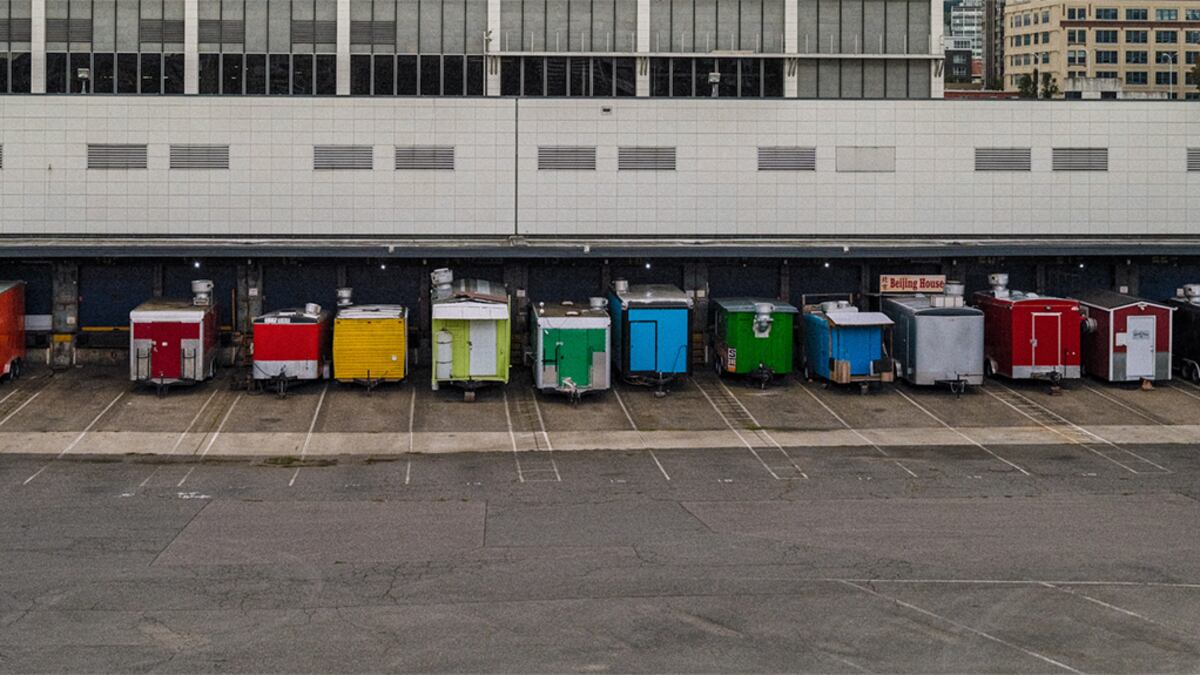Among the dozens of budget recommendations Portland Mayor Ted Wheeler made Thursday, one line item is intended to revive a long-stagnant project: a food cart pod on the streets surrounding a downtown plaza.
The mayor’s proposed budget includes $269,000 to relocate food carts that once stood in a parking lot where a Ritz-Carlton hotel is being built, to form a pod meant to surround Ankeny Square along West Burnside Street. The idea has been in the works for nearly two years but failed to get permits from the Portland Bureau of Transportation.
The pod was the brainchild of Keith Jones, director of the nonprofit Friends of the Green Loop, which seeks to create new public spaces that support small business owners. He tells WW he feels enormous relief at the mayor’s budget item and that all of the money, if allocated, would go toward creating electrical infrastructure so power would be available for the carts to operate.
“This gives us a huge step up in terms of getting back on track,” Jones says. “All of the original [carts] are coming back.”
He says a few of the more than two-dozen carts that were waiting in storage had to be sold by their owners because of the lost business, but he’s hopeful most of them will return.
Money for the cart pod is an infinitesimal fraction of the $5.7 billion budget Wheeler proposed April 29. But its inclusion both signals how high a priority the mayor places on reviving commerce downtown and shows how slowly city bureaucracy has previously responded to the need for outdoor gathering spaces during the pandemic.
For much of 2020, downtown Portland felt like a ghost town, even as Jones begged city bureaucrats to expedite his idea. WW examined the puzzling delay in December.
Jones sought to relocate two-dozen food carts that were displaced from a nearby pod so that a Ritz-Carlton could be built in 2019. Many of the carts displaced were run by immigrants. But permitting snafus kept stalling the project.
He tells WW he got so desperate to complete the project that he was even talking to surrounding building owners to see if he could use their power sources to provide electricity for carts.
Jones tells WW he received the appropriate permit from PBOT to build the carts in January and that it won’t be hard to get permission from Portland Parks & Recreation: “I’m trying to get it started within weeks here.”
The mayor’s office is on board with that plan and so is PBOT.
Jim Middaugh, a spokesman for the mayor’s office, says in an email that the Ankeny cart pod is a project that “will help put a group of small employers back to work and revitalize a long-blighted block downtown.”
“The goal is to move forward with permitting and construction immediately so the pod can be up and running this summer,” Middaugh said in an email. “City staff are reviewing the details of the project to avoid any delay on the city side.”
Jones says PBOT granted him permits for two of the three streets he requested for the carts. The bureau denied permits along the stretch of park on 8th Avenue because it’s needed for fire truck access—which will knock down the capacity of the pod by about six carts.
PBOT waived permitting fees for Friends of the Green Loop.
“We are helping organizers with temporary traffic control to make the area safe for food carts and pedestrian activity in the street, and to ensure access for utilities and neighbors,” spokesman Dylan Rivera said.
The pandemic drastically altered the downtown ecosystem, so Jones says it will be an uphill battle, as most of the pod’s customers would have been office workers and tourists—both of which are difficult to spot downtown.
While Jones is optimistic, he’s also being careful not to celebrate too soon: “This has been a series of false summits,” Jones says. “[Cart owners] are very happy to hear it’s going forward, but none of us are going to be jumping up and down until there are actually carts on the premises.”
